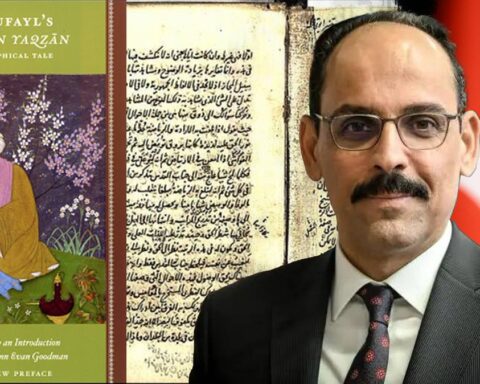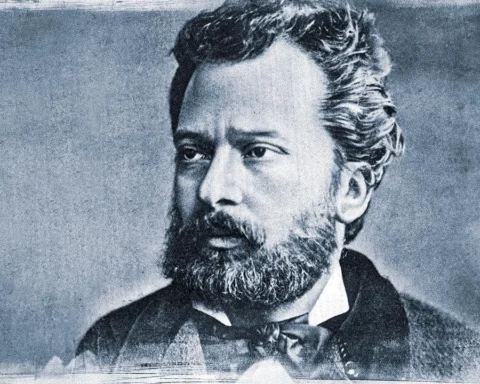It is time—if not overdue—for the Islamic world to shake off its apathy and support themillions of its people who have initiated grassroots boycott movements against Zionism. Thissupport must be provided by offering accessible yet high-quality alternatives in the food, hygiene, communication, and automotive industries. Moreover, this situation presentssignificant commercial opportunities for various sectors. Millions of consumers, unwilling topurchase Western products but unable to find suitable alternatives, have already created a newmarket.
The term “boycott” ironically entered the lexicon not through those who initiated it but ratherfrom the name of an Irishman who became its target. In 1880, Charles Boycott, a landowner, refused to lower rent prices despite a poor harvest season. In response, his tenants and theirsupporters launched a civilian protest against him, which included actions such as ceasingtrade with him and halting postal services. As a result, Charles Boycott unintentionallybecame the namesake of what we now call a “boycott.”
Other terms similar to “boycott” also exist in our language, but they carry nuanceddifferences. For instance, “embargo,” often used interchangeably, typically refers to state-imposed official actions, whereas boycotts are civilian-led initiatives. Furthermore, embargoesare generally a tool of the stronger side, while boycotts are more commonly a defensivestrategy used by the weaker party. History offers numerous examples of both embargoes andboycotts, and early Islamic history is no exception, showcasing instances of economic andsocial sanctions of both kinds.
The Prophet Muhammad (peace be upon him) and his followers endured a severe embargoduring the Meccan period, facing hunger, social isolation, and physical harassment for threeyears. However, these sanctions failed to produce the desired effect on the Muslims. This wasprimarily because breaking the bond of faith through material sanctions is extremely difficult. Additionally, the Muslims‘ limited economic resources meant the embargo had little impacton broader economic balances. In essence, “less is lost from the little, while much is lost fromthe much.” Since this community largely consisted of impoverished individuals, theireconomic losses were minimal.
The second notable instance of boycotting during the Prophet’s life emerged during theeconomic struggle against the Jews of Medina. Upon migrating to Medina, the Prophetobserved an exploitative and imbalanced economic structure. The major marketplaces werecontrolled by Jewish merchants, and Arabs had to pay taxes to access these markets and selltheir goods. This system allowed Jewish merchants to profit not only from their own trade but also from Arab transactions, leading to immense wealth accumulation among Jewish families. The solution was clear: Arabs needed to stop shopping in these markets and thereby curtailtheir economic dominance—a form of boycott in modern terms. However, completelyboycotting the city’s main marketplaces would have brought trade to a standstill. Therefore, the Prophet took a strategic approach by offering an alternative.
Instead of simply saying, “Do not shop at the Jewish markets,” the Prophet directed Muslimsto a marketplace he established in Medina, saying, “Shop here instead.” This new market quickly became one of the busiest in the city. Over time, other factors also contributed torebalancing the economic dynamics between Muslims and Jews. The critical takeaway here is that discouraging people from certain actions requires providing them with viable alternatives—a principle that remains crucial for the success of modern boycott movements.
The recent atrocities committed by Israel in Palestine have reignited interest in boycotts, a method used even before the official establishment of the State of Israel. At that time, boycotts targeted Jewish communities in Palestine to prevent the establishment of an Israelistate. However, perhaps the most impactful boycott against Israel occurred during the 1973 Arab-Israeli War, when Arab countries halted oil exports to nations supporting Israel. Although this was technically an embargo due to its state-level implementation, it alsofunctioned as a boycott—a reaction by the weaker party against the stronger. This boycottcaused a dramatic fourfold increase in oil prices in the West, triggering stagflation in manycountries. Developed economies, heavily dependent on oil, suffered significant setbacks, including rising unemployment and inflation. Nevertheless, this boycott, despite its profoundeconomic impact, was short-lived and failed to achieve its ultimate goals.
Following the signing of the Egypt-Israel Peace Treaty in 1979 and the Oslo Accords in 1993, state-level boycotts ceased, leaving civilian initiatives as the primary tool. However, it wouldbe overly optimistic to claim that these civilian-led boycotts have significantly deterred theWest or Israel. Several factors contribute to this lack of success. Most notably, Israel is supported as a strategic Anglican-Evangelical project by the West. While civilian boycottsimpose financial costs on pro-Israel companies, these costs are not substantial enough todissuade the West from subsidizing Israel. Both Western nations and the Jewish communityhave already accepted the financial burdens of sustaining this project. That said, the West’scapacity to subsidize is not limitless, and a boycott that pushes these boundaries could weakenthis support.
Here, the Prophet Muhammad’s emphasis on offering alternatives during the establishment of the Medina market is particularly relevant. For boycotts to succeed, it is essential to suggestor create alternative products or companies that enable people to continue their daily liveswithout disruption. For instance, if a brand tied to Israel is to be boycotted, a substitute brandmust be readily available. Recognizing that modern consumers view some luxuries as necessities, it is important to provide alternatives not only for essential goods but also forproducts that address these perceived needs. As in the Prophet’s example, calls to “avoid thisproduct” must be accompanied by invitations to “choose this product instead” to ensure theboycott’s success and sustainability. This approach can be described as a “positive boycott,” where directing people toward an alternative is more effective than merely discouraging themfrom a familiar option.
The modern world offers numerous examples of the success of “positive boycott,” particularly in the technology sector. For instance, China’s advancements in mobile communication technologies have forced U.S. and European manufacturers to take defensivemeasures, even prompting them to adopt rhetoric typically associated with boycotts. Western nations have begun advocating for the use of American-made products while imposingsanctions on Chinese companies. A more striking example is seen in the automotive industry, where century-old Western manufacturers appear to have been outpaced by relatively newChinese companies. In the Chinese market, the success of local automotive brands highlightsthe power of providing strong alternatives.
It is time—if not overdue—for the Islamic world to awaken and support the millions of itspeople who have earnestly initiated grassroots boycotts against Zionism. These efforts mustbe complemented with accessible yet high-quality alternatives in the food, hygiene, communication, and automotive sectors. Moreover, this necessity is not merely moral but alsopresents economic opportunities for various industries. Millions of consumers, reluctant topurchase Western products yet unable to find viable alternatives, have created an untappedmarket. The key is to offer products that are not only equivalent in quality to the boycotteditems but even superior.
World history is filled with moments of both risk and opportunity. During such pivotalperiods, those who are prepared—or sometimes simply fortunate—have taken significantstrides forward, leaving other nations and communities behind. However, fortune tends tofavor the prepared. Don’t you think it’s time for fortune to finally smile upon us?






